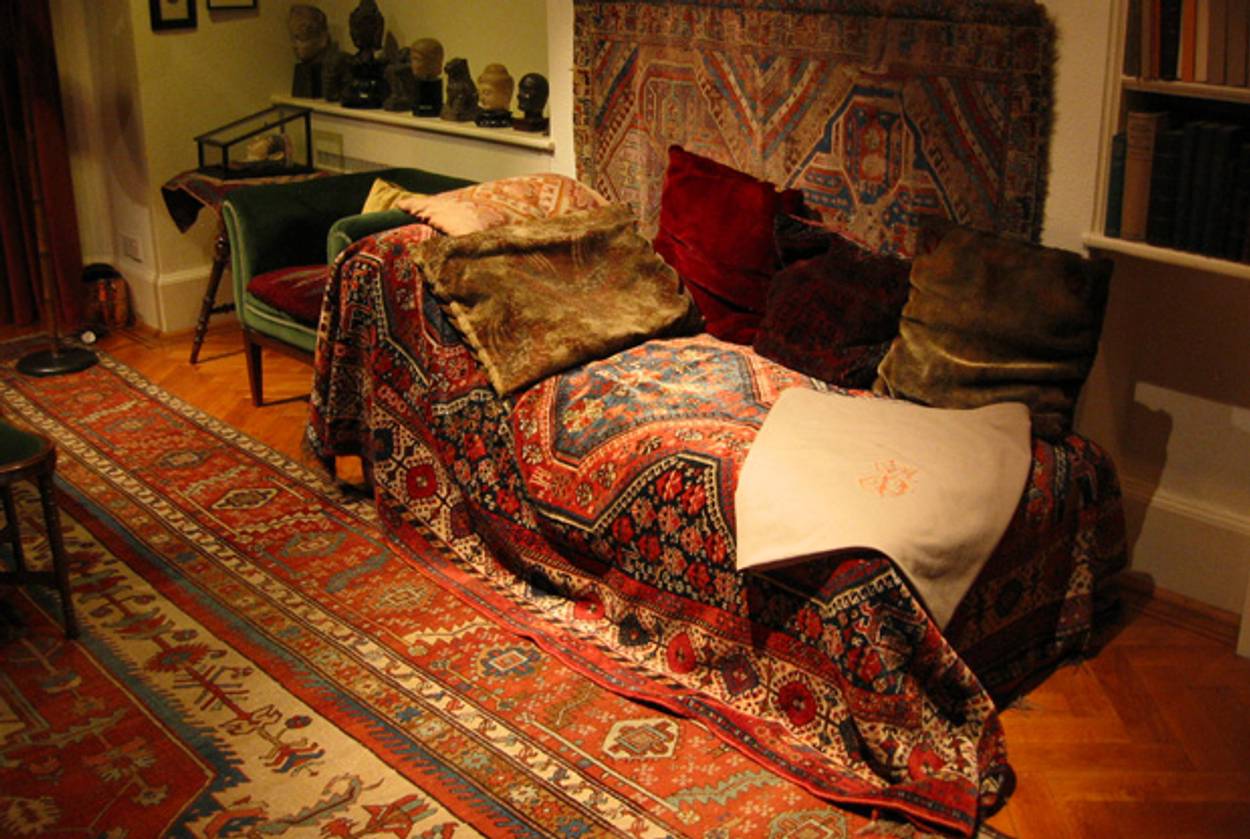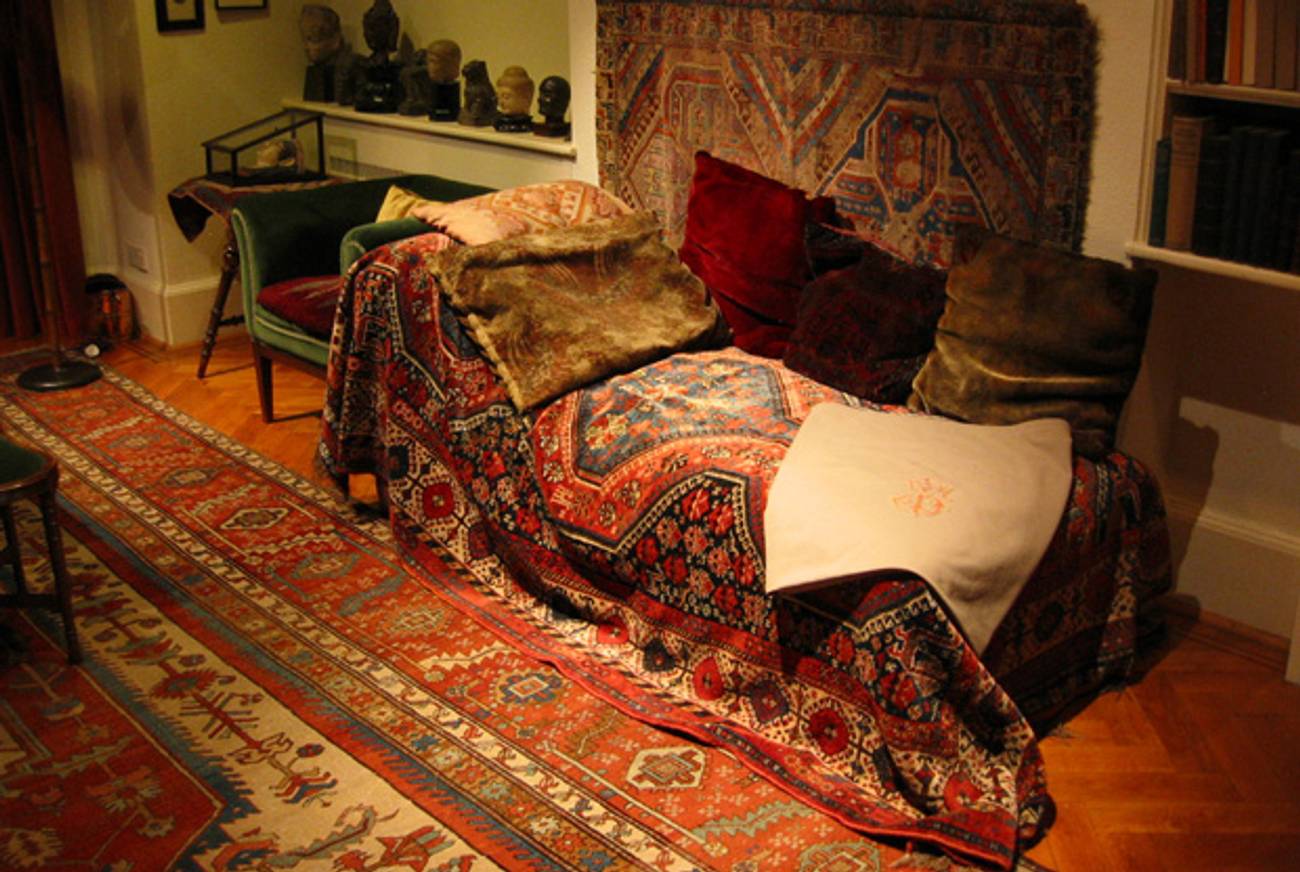A Contemporary Freudian Slip
After a controversial but predictable debate, a leading New York psychoanalytic society changes its name




If sometimes a cigar is just a cigar, as Sigmund Freud allegedly once asserted, then could the name of an influential psychoanalytic society just be a name?
On Friday, the New York Freudian Society—a not-for-profit organization that, along with its companion training institute, is among a handful of New York analytic organizations that belong to the prestigious International Psychoanalytic Association—officially changed its name to the Contemporary Freudian Society. It’s a shift that’s been in the works since 2009, but it’s actually been on members’ minds for much longer.
Psychoanalysis, like all other disciplines, has evolved—theoretically and demographically. Almost no one subscribes any longer to Freud’s theories of female development and sexuality, and it’s rare to find an analyst who rigidly subscribes to his decrees about technique. Freud’s basic ideas—that we’re influenced by our unconscious conflicts and desires; that childhood experiences shape adult character—remain the bulwark of psychoanalysis, but, like Charles Darwin’s, they’ve been updated. Freud himself incorporated new discoveries over decades of his life that, in some cases, overturned his own initial understandings. And many other theorists—Melanie Klein, Karl Abraham, Donald Winnicott, Hans Loewald—followed, adding to and even revising Freudian theory.
“The somewhat authoritarian view of early work which was part of Freudian thinking—I don’t think this is there at all anymore, because it doesn’t work in today’s world,” said Dr. Edwin Levy, who has been an analyst for decades and joined the Society in the 1980s.
Levy and his colleagues came up with a name they believe will work better in today’s world—but, as in everything in life, what they took out may say as much about the group’s identity as what they chose to retain.
Analytic work is about self-perception and self-understanding, and so it is perhaps no surprise that this decision was made with a great deal of introspection. About eight years ago, a new name was first proposed, but it didn’t pass a two-thirds majority of voting members. This ended discussion until the fall of 2009, when, at an annual brainstorming retreat, the board voted unanimously in favor of considering a new name. The point was to communicate all of the changes the Society has undergone—in theory, in practice, and in demographics—to potential patients and candidates, as well as to the analysts themselves.
In the winter and spring of 2010, about a dozen focus groups in New York and Washington, D.C., discussed the possibility of a name change. Not actual names, yet—just whether a new name might be beneficial. In analysis, the patient is meant to free-associate, with no set end goal in mind. No top-down directives, no chiding. Same here: These were free-flowing, open discussions. “They’re not supposed to solve the question,” said Dr. Sharon Bisco, a Baltimore analyst and outgoing board member. “The purpose is to air their views.” By late spring, the board had brought a vote to the membership: Would they change the name if they felt there was an option that better represented the Society? Yes, they would.
So, on to the challenge of selecting a new name. A task force came up with one idea: the Center for Advanced Psychoanalytic Education, or CAPE. This was brought to the board. And thus began the first, and most contentious, debate: over whether to retain the name of the group’s spiritual father, or to—well, to kill him.
No one involved would tell me exactly what went on in these meetings, but everyone I spoke to mentioned the heated nature of this phase. Older members interviewed said they were surprised that it was often the candidates—people young in their careers, just in training to be analysts—who felt most strongly that Freud should remain. “In some ways, it may be that being in a position of having a very intense attachment and connection to the place, there’s a kind of idealization and identification that might be very hard to give up,” Bisco said. Bisco herself was ready to remove Freud’s name; so, at first, was Dr. Elizabeth Fritsch, the outgoing president. But Fritsch said that the forums changed her mind—by the end, she was ready to keep Freud’s name. You might say that, through open discussion, she’d worked through her resistances and made peace with the society’s chosen identity.
Psychoanalysis aims to help patients retain the useful parts of their upbringings and work to understand, and then shed, the qualities holding them back. In describing the name change, one board member, who wished to remain anonymous, gave the analogy of a closet full of clothes. You decide to de-clutter, keeping the classics (Freud’s idea of the unconscious), which “create the structure for your wardrobe—you really couldn’t imagine your life without them.” You toss some other pieces (penis envy) to make room for the new (Kleinian theory on aggression). And then you go get a haircut (or, in this case, a new name) to present yourself to the outside world.
The board proposed the rather cumbersome Freudian Society for Psychoanalytic Education, which members didn’t like. Soon after, another task force was appointed, and this one came up with the Contemporary Freudian Society.
In March of 2011, the Society’s members voted, by mail, and selected the Contemporary Freudian Society as the final new-name option. In a subsequent vote, between Contemporary Freudian Society and the old name, the former won by a substantial majority. An official, in-person (or by-proxy) vote in New York, necessary to change the bylaws, confirmed the decision.
The members of the old New York Freudian Society describe the name change as a major identity shift—in some cases, as a matter of loss and grief. (A write-up sent by one of the focus groups to the membership helpfully noted: “There is no change without loss.”) Still, most insisted that this was a matter of branding: Names are always important to people, and it wouldn’t have been much different for any other organization—a sports team, say, or a university.
All reasonable—except for the fact that believing this flies in the face of the philosophy’s own standards. Psychoanalysis revolves around talking, around language. Words—even those proverbial Freudian slips of the tongue—are understood to cover layers of meaning. And branding is about subliminally influencing people to invest in your organization or product, which is clearly not what’s going on here. Fritsch acknowledged that while the initial goal may have been more akin to a branding change, “as we got more clear in who we are, the identity part, I think people became more comfortable with the idea that changing the name would better reflect our identity.”
So, then what does erasing “New York” mean to the identity of psychoanalysis?
Freud’s creation, of course, was called “the Jewish science,” a signifier that was not meant to flatter. But “New York” is also, as some see it, a signifier of Jewishness. “Taking the ‘New York’ out and not substituting any locale, but instead substituting a time frame, does sort of render it a bit less ethnic,” the writer Daphne Merkin said upon hearing the story. All the Society members I spoke to portrayed this move as a matter of factual integrity—there’s now a parallel hub in D.C., with more members nationwide—but one would be forgiven for wondering about subconscious drives here, an effort perhaps to reduce the Jewishness of the name by half.
Longtime Society member Dr. Edwin Levy likened the analytic method to that of Talmudic study—“there’s something very reminiscent about the very careful picking apart of reasoning and trying to make sense out of it”—as did Dr. Marsha Levy-Warren, the president-elect, who pointed to the Socratic quality of both: the back-and-forth between teacher and student, and between analyst and patient. Levy-Warren mentioned the emphasis on curiosity and agency in contemporary Jewish culture as present in analysis, too. But at a time when analysis has become viewed by many as insular, anachronistic discipline, perhaps shouting its Jewishness from the rooftops isn’t the smartest idea. The picture of anemic, bookish Jewish analysts, “stuck in an airless office, pursuing the life of the unconscious,” as Merkin put it, may not be the vision an organization striving for relevancy wants to present, to us or to itself.
In any case, what they do seem to want is a balance between past and present. Like psychoanalysis, this name isn’t about complete reinvention—it’s about recognizing the most useful parts of the discipline’s history and making the rest, well, contemporary.
***
Like this article? Sign up for our Daily Digest to get Tablet Magazine’s new content in your inbox each morning.
Jessica Gross is a writer based in New York City.
Jessica Gross is a writer based in New York City.